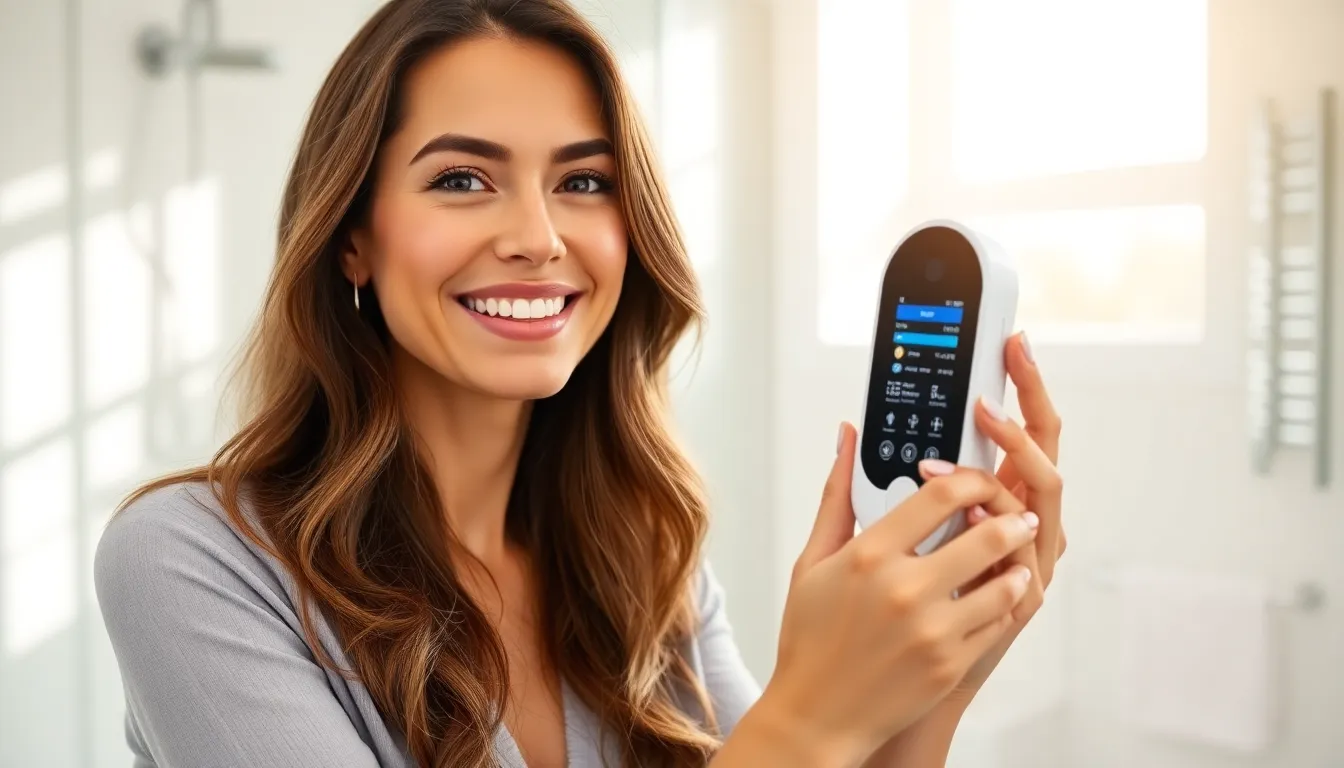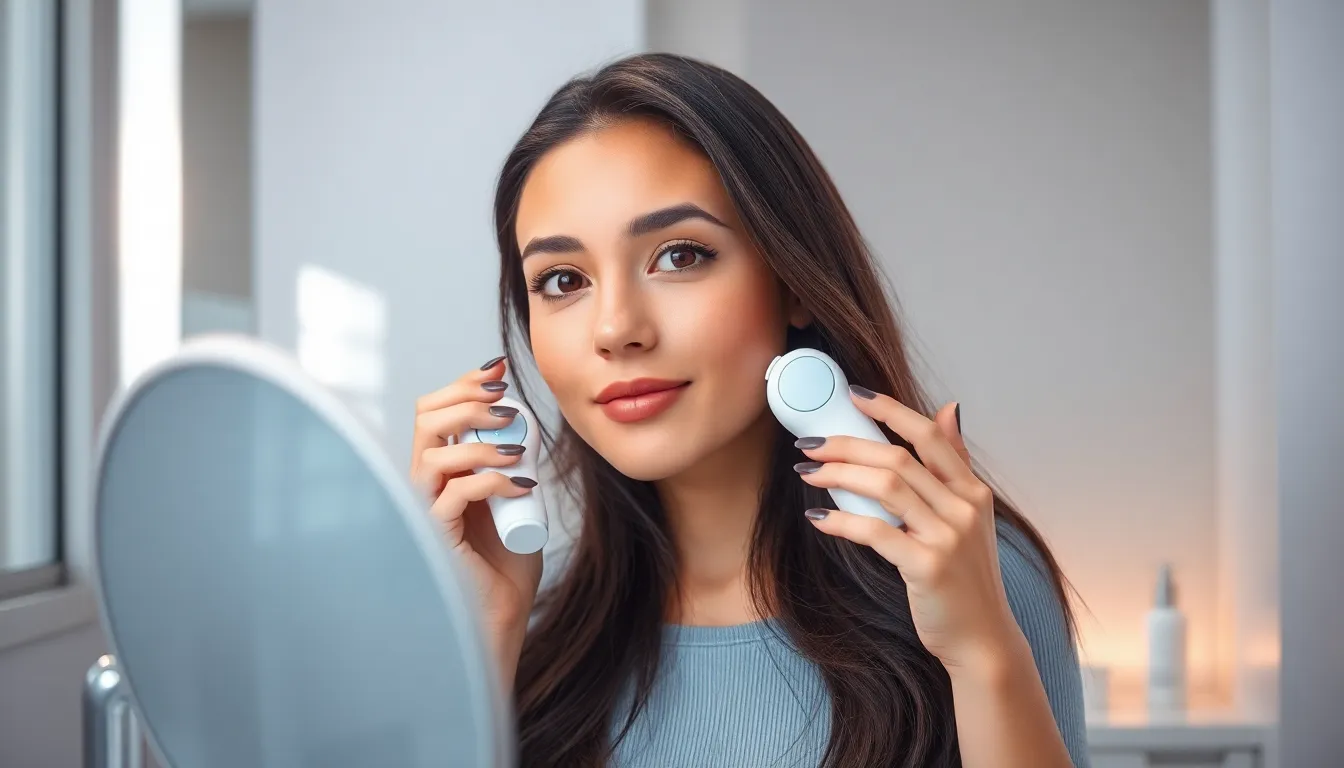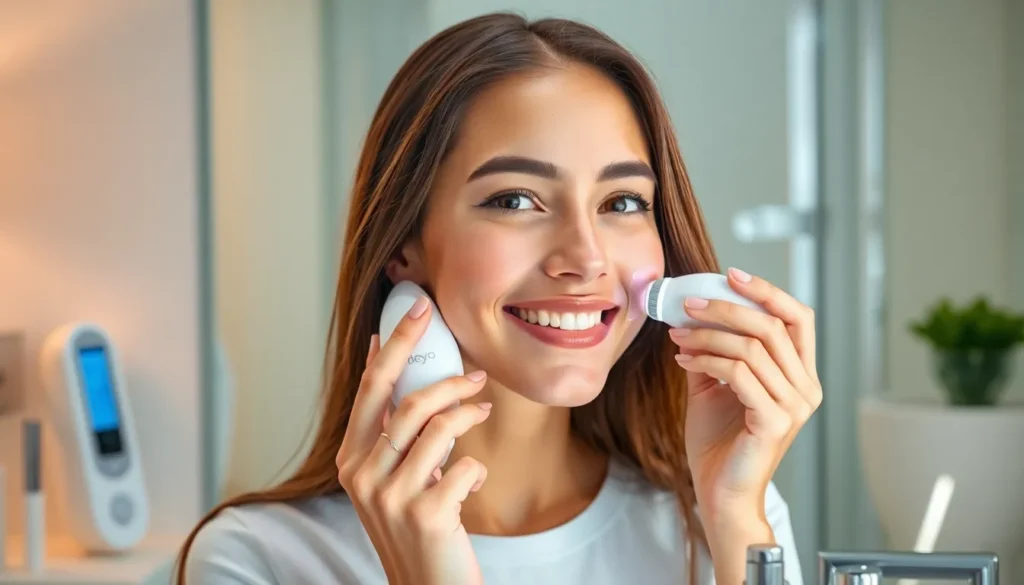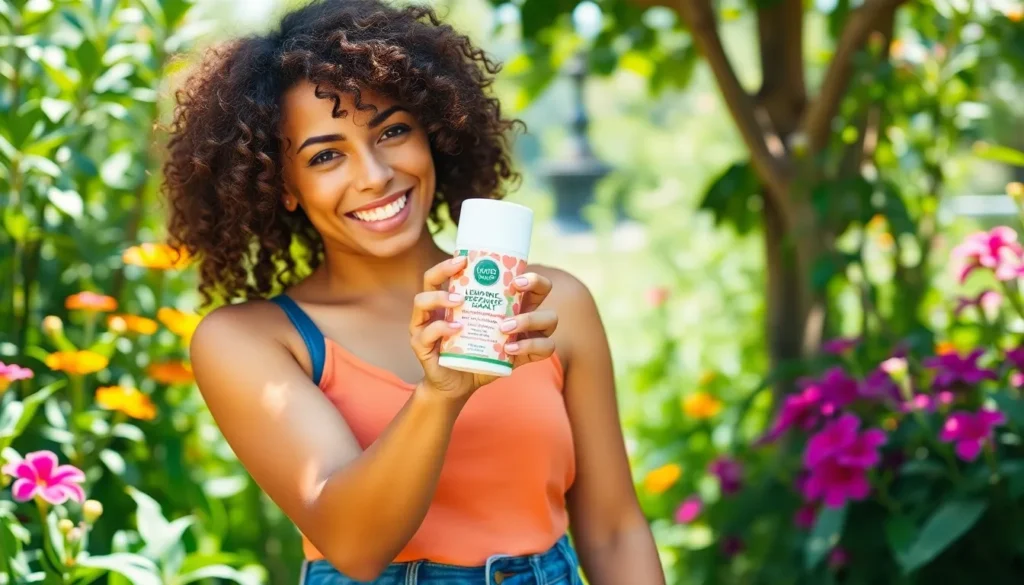Table of Contents
ToggleIn a world where beauty meets technology, the latest trends are transforming how people pamper themselves. Imagine a future where your skincare routine is powered by AI, and your makeup applies itself with the push of a button. Sounds like a sci-fi movie, right? Well, it’s not—it’s the reality of beauty tech, and it’s here to stay.
Overview of Beauty Technology Trends
Beauty technology trends are shaping modern personal care. Artificial intelligence is personalizing skincare products based on individual needs. For instance, apps analyze skin conditions and recommend tailored solutions. Augmented reality also plays a significant role, enabling virtual try-ons for makeup and hair colors before making purchases.
Wearable beauty devices are emerging, collecting real-time data about skin health and hydration levels. They help users monitor their skin’s condition and recommend adjustments to everyday routines. Innovative ingredients in products, driven by biotechnology, enhance effectiveness, providing consumers with superior options.
Sustainability and ethics are at the forefront of beauty technology developments. Brands are incorporating eco-friendly practices and ingredients in response to consumer demand for responsible beauty solutions. Digital marketing strategies are evolving, leveraging social media platforms to engage audiences through immersive experiences.
Subscription services are gaining popularity, delivering customized beauty products directly to consumers’ doors. These services often utilize algorithms to personalize selections further, ensuring users receive products that suit their preferences.
Blockchain technology contributes to transparency in the beauty industry, allowing consumers to trace the origins of ingredients and ensure ethical sourcing. As trends continue to evolve, the relationship between beauty and technology is set to deepen, driving further innovation in product development and consumer engagement.
Advancements in Skincare Technology


Emerging technologies bring significant advancements to skincare. Innovations transform routines, offering enhanced results and greater accessibility.
Smart Skincare Devices
Smart skincare devices play a vital role in personal care. These gadgets often provide features like hydration analysis, customized recommendations, and real-time monitoring. Devices track skin conditions, relay data via apps, and adjust routines seamlessly. An example includes handheld devices that analyze hydration levels to optimize product usage. Users benefit from personalized regimens based on their unique skin needs. Brands also focus on integrating sensors that detect environmental changes, helping individuals adapt their skincare accordingly. Overall, these tools simplify skincare management and elevate user experiences significantly.
AI-Powered Skin Analysis
AI-powered skin analysis enhances the ability to understand individual skin needs. Sophisticated algorithms assess skin type, texture, and concerns quickly. Users receive tailored advice on products and routines based on data-driven insights. For instance, mobile apps use AI to analyze selfies and suggest personalized skincare regimens. This level of personalization enables consumers to make informed decisions. Moreover, the technology continues to evolve, improving accuracy and effectiveness over time. Many industry leaders prioritize this type of technology, recognizing its potential to revolutionize skincare diagnostics and treatment plans.
Innovative Makeup Solutions
Innovative makeup solutions are transforming how individuals approach beauty routines. Technologies like augmented reality and customizable products enhance personalization and user experience.
Augmented Reality Makeup Apps
Augmented reality makeup apps allow users to visualize products before purchase. Users can apply different lip colors or eye shadows virtually using their smartphone cameras. Makeup brands integrate these apps to offer interactive experiences, making shopping more engaging. Such tools lead to informed choices, reducing product returns. Top brands like L’Oréal and Sephora leverage this technology, creating platforms where customers can experiment without commitment. Users appreciate the convenience augmented reality provides, enabling exploration of diverse looks effortlessly.
Customizable Beauty Products
Customizable beauty products empower consumers to create formulations tailored to their specific needs. Brands now provide options for skin type, tone, and personal preferences. Shoppers engage in creating unique shades or ingredients using online tools or in-store experiences. Notable companies like Function of Beauty set trends, facilitating personalized hair and skincare products. These tailored solutions cater to diverse consumer demands, ensuring effective skincare routines. Such innovation fosters brand loyalty as customers feel their individual needs are recognized and met.
Hair Care Technology Breakthroughs
Innovative advancements in hair care technology are changing how individuals approach hair health and styling. New tools and analysis methods enhance effectiveness and personalization in hair care routines.
Hair Growth Devices
Advanced hair growth devices utilize light therapy or microcurrent stimulation to promote hair regrowth. This technology effectively targets hair follicles, fostering thicker and healthier hair strands. Various brands have introduced FDA-cleared devices that optimize hair restoration within weeks. For instance, laser combs are popular among users seeking non-invasive treatment options. Many devices feature built-in sensors that adjust treatment based on individual hair conditions, ensuring a tailored experience. As a result, consumers can achieve desirable hair results with increasing reliability.
Personalized Hair Care Analysis
Personalized hair care analysis technologies deliver insights tailored to individual hair types and scalp conditions. These systems often use AI algorithms to assess hair health, providing tailored product recommendations. Users benefit from customized regimens that address specific concerns like dryness, damage, or oiliness. Digital platforms have emerged, enabling consumers to receive professional advice through smartphone apps or online consultations. Many services analyze hair samples, guaranteeing a deeper understanding of unique needs. Personalized approaches ensure that customers invest in treatments that truly benefit their hair health.
The Role of Sustainability in Beauty Tech
Sustainability shapes the landscape of beauty technology. Brands increasingly prioritize eco-friendly practices in response to consumer demand for environmental responsibility. Implementing sustainable sourcing of ingredients becomes a necessity, enabling companies to minimize their ecological footprints.
Innovative packaging solutions also emerge as a trend, emphasizing recyclability and reduced waste. Many brands are developing refillable containers, encouraging customers to participate in sustainable practices. Consumers appreciate transparency in ingredient sourcing, which leads to increased brand loyalty.
Some companies utilize biotechnology to create effective products while using fewer natural resources. These advances allow for the development of potent formulations derived from renewable sources. Brands that adopt such methods often gain a competitive edge in the market.
Lean manufacturing processes become another focal point in sustainable beauty tech. Reducing energy consumption and minimizing waste in production not only aligns with eco-friendly goals but also enhances efficiency. Implementing these practices resonates well with environmentally conscious consumers.
Consumers benefit from formulations that are free from harmful chemicals, showcasing a commitment to health and sustainability. The rise of clean beauty brands emphasizes this commitment, leading to increased consumer awareness and demand for safer options. Many consumers seek products that reflect their values, driving brands to invest in ethical practices.
The integration of technology drives sustainability further. Digital tools enhance supply chain transparency, allowing consumers to track the lifecycle of products. Innovations such as blockchain play a vital role in ensuring ethical sourcing of ingredients, reinforcing the trust between brands and consumers.
Adjusting to sustainable trends becomes imperative as the beauty industry evolves. Many brands are not just adapting to changes but leading the movement towards a greener future. The commitment to sustainability creates a lasting impact, fostering a culture of responsibility within the beauty tech landscape.




